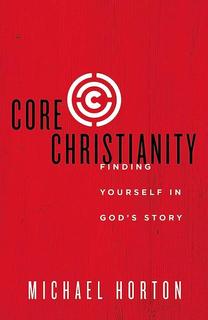One of the difficulties of reading the Bible is the Bible itself. Not only new believers, but old ones as well, often find it tough slogging to pick up the book at Genesis and wind up at Revelation without giving up somewhere in between. The Protestant Reformers never said that the Bible is an easy book. What they said is that its basic message is essentially clear, even if not everything in Scripture is equally clear. The Westminster Confession confirms this in a wisely constructed sentence:
All things in Scripture are not alike plain in themselves, nor alike clear unto all: yet those things which are necessary to be known, believed, and observed for salvation, are so clearly propounded, and opened in some place of Scripture or other, that not only the learned, but the unlearned, in a due use of the ordinary means, may attain unto a sufficient understanding of them. (1.7)
What God requires and what he has done to save us in Christ is evident from Genesis to Revelation.
The Bible can be understood by anyone with energy, patience, and wise instruction. As Mark Twain quipped, "It ain't the parts of the Bible I don't understand, but the parts that I do, that trouble me." Yet the more we read it, the more we appreciate its depth and complexity. Like the Ethiopian treasury secretary who asked Philip how he could possibly understand the passage from Isaiah he was reading without a teacher, all of us need to be helped along by people who are even just one step ahead of us.
All the more, it is important for us to read with the wider church. Pastor-teachers and elders are given by Christ to guide us in this privilege of hearing and reading God's Word. The creeds and catechisms are great places to start. After all, they emerged from periods of confusion and controversy. Instead of representing the idiosyncratic emphases of a single leader or school, they are consensus documents forged within actual churches as they sought to clarify the most central teachings of Scripture. It is especially significant that in spite of so many disagreements and divisions, orthodox Christians have for so many centuries affirmed the ecumenical creeds as faithful summaries of Scripture.
1) The Bible is a fully human book that is also divine.
It seems rather obvious that the Bible is a book. Sometimes, however, we forget this in actual practice. Scripture comes from God, not from human beings (2 Pet. 1:20); it is inspired by the Holy Spirit—"God-breathed" (2 Tim. 3:16). In that sense, it is unlike any other book. However, Scripture itself teaches that God works through ordinary means. So it's never a choice between God's Word and human words; rather, it is God's Word through human ambassadors. Unlike Islam's view of its Qur'an, Christians do not believe that the Bible fell from heaven, dictated by an earthly messenger. Coming from God, the words of the prophets and apostles nevertheless bear the evidence on every hand of their human ministry.
We should not be surprised at this, since God became flesh in our history and through the eternal Son, Jesus Christ, assumed our humanity. He inherited a specific genetic code, including features and characteristics of his family tree; he spoke a particular language that had evolved centuries before he spoke it; and he behaved in ways that reflected the norms of his unique time and place in the world. We can so emphasize the deity of Christ that we forget his humanity or see it somehow like an old-fashioned pair of scales: the more we affirm one, the less we affirm the other. No, Christ is fully God and fully human. He was like us in every way. In fact, he was "tempted like us in every way, yet without sin" (Heb. 4:15).
Analogously, Scripture can be entirely human and yet without error in all that it affirms. When we see evidence of Scripture's humanity, we should not imagine that it is not from God. The Triune God works mysteriously above, within, and through history in a way that connects with us. Given this fact, we should not read the Bible like any other book when it comes to authority. God has the first, middle, and last word. We should meditate on Scripture as God's speech, not only in terms of its authority, but also its comfort and assurance. It would be inappropriate for us to treat any other book in this manner. Yet we should read it like any other book when it comes to interpreting its meaning. The same grammatical and stylistic rules that went into composing these books must be understood in order to interpret them.
2) The Bible has one message with many genres.
It has often been said that the Bible is more like a library than a book. This is an important point. It was written over twelve centuries with many writers, under many kings of Israel, as well as during exile under three pagan empires. Differences in style and even in the evolution of different languages can be detected by scholars as one moves from book to book. There are also different emphases in each book. There are many reasons for this.
First, each was written from a different perspective. Even the historical books of the Old Testament or the Gospels of the New Testament reveal different standpoints and interests. At first, that might startle us. If there is one message—one gospel— how can there be different versions?
It may help to use a courtroom analogy. While serving on a jury, you may hear discrepancies between various testimonies. Yet, as the judge will tell you, discrepancies do not mean contradictions. Each witness saw the event described from a particular angle and at a particular time in the unfolding of the scene.
Second, the diversity of standpoints is compounded by the diversity of emphases. Even the Gospels—as eyewitness reports—are evangelistic tracts. All witnesses bring their own biases and interests with them to the stand. However, the apostles make no effort to conceal their bias. They were convinced by what they saw and heard that God had acted in history for the redemption of the world.
The Gospels are therefore not simply chronologies or records. Each writer wove the details of what they and others saw and heard into a pattern that proclaimed Jesus Christ as the only hope of salvation. Each writer emphasized particular facets of Christ's multifaceted person and work, reflecting their own backgrounds, interests, and styles as authors. Yet it was the Spirit who prepared each writer's ordinary life for this extraordinary calling.
One of the ways we can downplay the humanity of Scripture is by thinking that it transcends normal rules of interpreting different genres. Because we understandably privilege the historical narratives and Gospel reports, we can easily assume that everything in the Bible is a straightforward assertion or proposition, a true statement.
The danger is apparent when poetry is read as prose, apocalyptic is read as historical narrative, and figures of speech are treated as literal descriptions—or when the relation is reversed, as when a historical report is interpreted as allegory or poetry. People used to reading different genres in secular literature are in a good position to read the Bible.
3) The Bible is our ruling constitution.
The different genres [of the Bible] are bound together not simply by a unified plot, but by a unified canon. Scripture is rightly divided between Old and New Testaments, because each has its own constitution around which all of the various writings fit.
Other nations had the gods as witnesses. Only in Israel, however, was the deity also the head of state—the emperor or "Great King." Many ancient Near Eastern treaties display common features: (1) a preamble, identifying the great king who is imposing the treaty on the lesser nation; (2) the historical prologue justifying his right as sovereign maker and enforcer of the treaty; (3) the stipulations governing the servant nation; and (4) sanctions—the specific benefits for loyalty and judgments for disloyalty. Finally, a copy of the treaty would be deposited in the shrine or archive of the suzerain and the vassal. The Old Testament displays these characteristics.
First, there is the covenant with Adam in the Garden with the preamble ("In the beginning God…"); the historical prologue, justifying God's sovereignty over creation, including humanity; and the command, along with the warning for disobedience. Then there is the promise to Adam and Eve of a Savior.
Second, there is the historical narrative that justifies Yahweh's sovereignty over Israel, specifically. It leads from Abraham to Isaac, Jacob, and Joseph, with the promise of a new exodus. God will bring his people back to this land that God swore to Abraham and establish them as his holy nation.
Third, jumping to Deuteronomy, we have the constitution that forms the core of "the law." It spreads back into Exodus and forward into Leviticus. The wisdom literature displays the universality of God's moral law. Although Israel has been given a specific constitution, with laws that mark it off from every other nation, the core of that law reflects the moral fabric of the world that God has made, which is summarized in the Ten Commandments.
Fourth, the Psalms are the hymnal in which we have the songs that emerged from this story of Israel. The worship commanded in Leviticus is assumed in these songs. So too are the promises that transcend the era of the Sinai law, looking forward to the greater Son of David.
Fifth, the prophets are God's covenant lawyers bringing his suit against Israel. They invoke the sanctions: curses for transgression and exile from God's holy land.
Nevertheless, the Abrahamic covenant of grace has not been set aside by Israel's failure, because it is not based on the people's oath that they swore at Sinai. Rather, it is an everlasting covenant that depends exclusively on God's faithfulness in sending his appointed Messiah. Prophecy and apocalyptic swirl together in the prophetic books, because "eye has not seen nor ear heard what God has prepared for those who love him" (1 Cor. 2:9). Only these genres will do, because they give us intimations, sudden insights, snapshots, and the strange strains of songs from a faraway place.
The same pattern is discerned in the New Testament. In broad terms, the Gospels give us the preamble and historical prologue, the Epistles give us the doctrines and commands that arise from this drama, and the book of Revelation is God's prosecution of his lawsuit against the oppressors of his people and the promise of the new creation. The sanctions unfold: it is the Last Judgment.
So we not only have to see the one plot unfolding from Genesis to Revelation, as if it were one historical narrative, but we have to see how Israel's story—the old covenant rooted in Sinai—is, like Hamlet's play-within-a-play, distinct from the Abrahamic promise that also unfurls its banner throughout the otherwise depressing episodes of Israel's defiance. We have to see how Proverbs serves as a testimony to the universality of the moral code at the heart of Israel's covenant, how the Psalms form the hymnal of covenant worship.
We have to recognize the distinct lines of the Sinai covenant, so that we see the gospel in the Old Testament and do not confuse the unique stipulations and sanctions of the Sinai treaty with those of the Abrahamic promise. So now we read the commands even in the Epistles from Zion, not Sinai. They are not conditions for "long life in the land," but what Paul calls "the reasonable service" that we are to offer "in view of the mercies of God" (Rom. 12:1).
4) The Bible distinguishes the law from the gospel.
Two more aids to interpreting Scripture are worth mentioning. First, it is crucial to distinguish covenants. We have to distinguish the law from the gospel. This does not mean Old Testament versus New Testament. Nor does it mean that law is bad and gospel is good. Both come from the mouth of God. So it is a matter of distinguishing between what God is doing and not doing when he is speaking. Is he judging or delivering, convicting or comforting, revealing his moral will for our lives or revealing his saving purposes?
The principle of inheriting everlasting life by law is totally opposed to the principle of inheriting everlasting life by promise. This is clearly stated in many places, but especially in Galatians 3 and 4. Second, it is important to interpret all of Scripture in the light of Christ. Jesus Christ is the central character in this unfolding drama. This is how Jesus and his apostles themselves interpreted the Old Testament (see, for example, John 5:39–40; Luke 24:25–27; and the sermons in Acts).
I have heard sermons that make me ask at the end, "Did they even need this particular text to preach that sermon?" It may even have been theologically sound and evangelically motivated. But they thought that preaching the law and the gospel and preaching Christ from all the Scriptures meant simply repeating the same formula every week. That is easy, but it is unfaithful to the text. Some lose the forest for the trees; others lose the trees for the forest.
To put it concretely, the command not to have any other gods but Yahweh can be heard (by someone trusting in Christ) as the promise that God has made us his own and will never forsake us. You cannot just come up with an omnibus list of "law" passages and "gospel" passages.
We do not see Christ in every passage explicitly any more than the central character of a novel or play appears in every scene. Part of the charm of a good story is that central characters impose themselves in the process of a thousand scenes that seem to be about something or someone else. Jesus also reveals the Father. He even reveals what it means to be human. There is a wealth of key teachings in Scripture, which itself impels us to seek the Trinity, the kingdom of God, and wisdom for daily living. None of them can be abstracted from the drama of redemption in Christ, but we do not get to Christ by leaping over the text. There is a passage in front of us, either as preachers or as hearers and readers.
Each piece fits into a puzzle that reveals Christ as the center, but each piece must actually fit. You can't just force it into place in order to "reveal Christ." Christ is the Rock in the wilderness (1 Cor. 10:4), but that doesn't give us license to find Christ under every rock, as it were. There is a hasty—and lazy—kind of typology that ignores the immediate context and meaning of a passage in order to make it a "code" for deciphering Christ.
The meaning of a passage is not found above, behind, or beneath the text. You don't preach the categories but use the categories to preach Christ as the central character of the whole story, from every particular text.
Adapted from Michael Horton, “How to Read the Book,” Modern Reformation. Used by permission.






